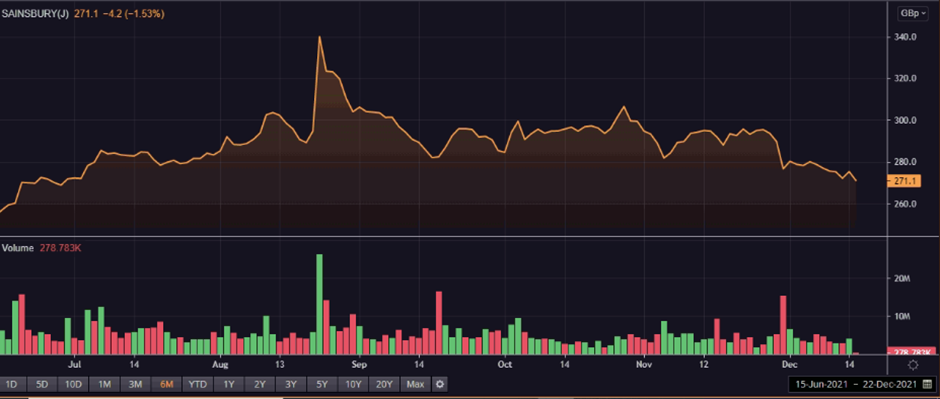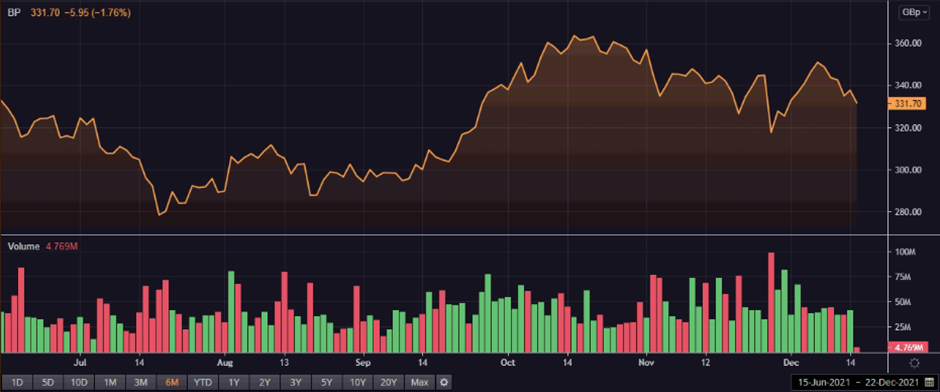Highlights
- The UK’s November consumer price inflation rose to 5.1 per cent, the highest in 10 years, as per ONS.
- November’s sharp inflation rate increase was driven by several factors, but mainly due to record high petrol prices.
- Experts are of opinion that this sharp rise in inflation could put additional pressure on the Bank of England to hike interest rates later this week.
The UK’s November consumer price inflation rose to 5.1 per cent, higher than the 4.2 per cent reading in October, according to data from the Office for National Statistics (ONS)
The last time inflation rates had reached such levels was over a decade ago, when the consumer price rate stood at 5.2 per cent in September 2011.
November’s consumer price rates were even ahead of forecasts. The sharp inflation rate increase was driven by several factors, but mainly due to record high petrol prices.
November average petrol prices stood at 145.8 pence per litre, while was at 112.6 pence per litre in the previous year same month.
The month’s prices were the highest recorded petrol price in the UK. Some experts believe that this sharp rise in inflation could put additional pressure on the Bank of England to hike interest rates on its meeting scheduled for 16 December. However, the rise of Omicron cases might cause policymakers to not take such action until 2022.
In view of this, let us take a look at 2 FTSE 100 index listed forecourt operators and see how they reacted to the development:
- J Sainsbury PLC (LON: SBRY)
Sainsbury’s is a UK based supermarket and is also among one of the major petrol station retailers in the UK.
Sainsbury’s Petrol has a 96 per cent fame rating and a 49 per cent popularity rating as of Q3 2021, according to data from YouGov.co.uk.
The group’s H1 2021/22 revenue (including fuel and excluding VAT) rose by 5.3 per cent y-o-y to £15,724 million.

Image source: Refinitiv
As seen in the above Refinitiv chart, Sainsbury’s shares were trading at GBX 271.00, down by 1.56 per cent on 15 December at 09:48 AM BST. The FTSE 100 index was at 7,189.34, down by 0.41 per cent.
The group’s market cap stood at £6,421.90 million, and its one-year return was at 19.69 per cent as of Wednesday.
- BP PLC (LON: BP)
BP is a UK based oil supermajor and is also among one of the leading petrol retailers in the country.
BP has a 97 per cent fame rating and a 40 per cent popularity rating as of Q3 2021, according to data from YouGov.co.uk.
Related Read: BP & Shell (RDSB): 2 energy stocks to hold amid rising petrol prices
The group’s Q3 2021 interim dividend will be at US$ 0.0546 per ordinary share. Its payment date is for later this week, on 17 December.
Thus, the pound sterling dividend, which will be payable in cash on Friday, will be 4.1045 pence per share.

Image source: Refinitiv
As seen in the above Refinitiv chart, BP’s shares were trading at GBX 331.70, down by 1.76 per cent on 15 December at 10:13 AM BST.
The group’s market cap stood at £66,558.27 million, and its one-year return was at 23.24 per cent as of Wednesday.
.jpg)


